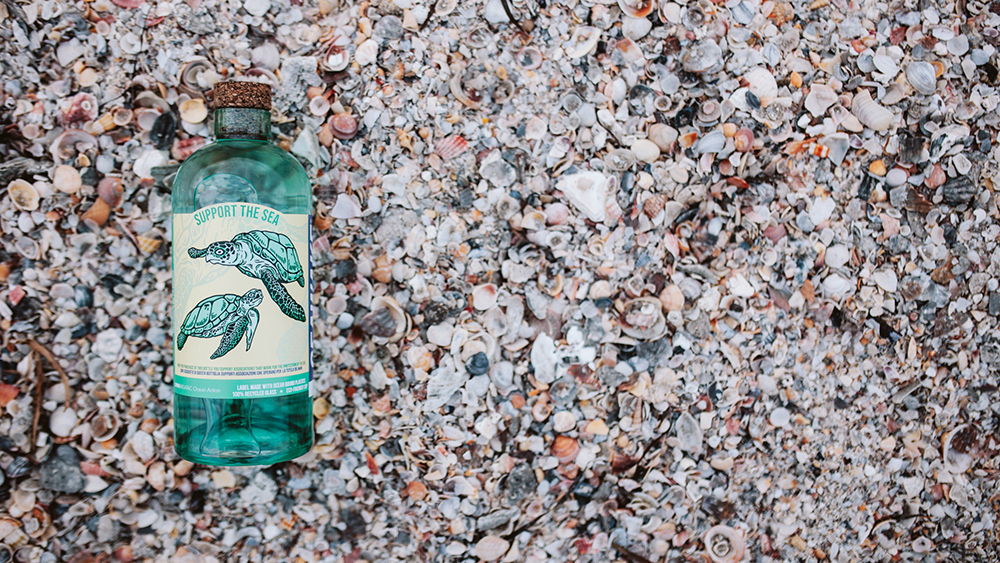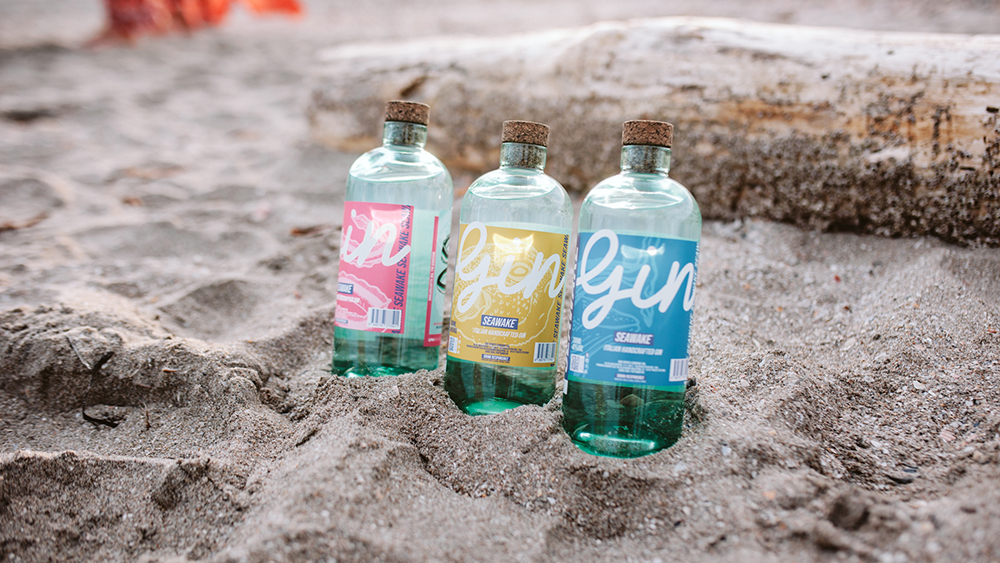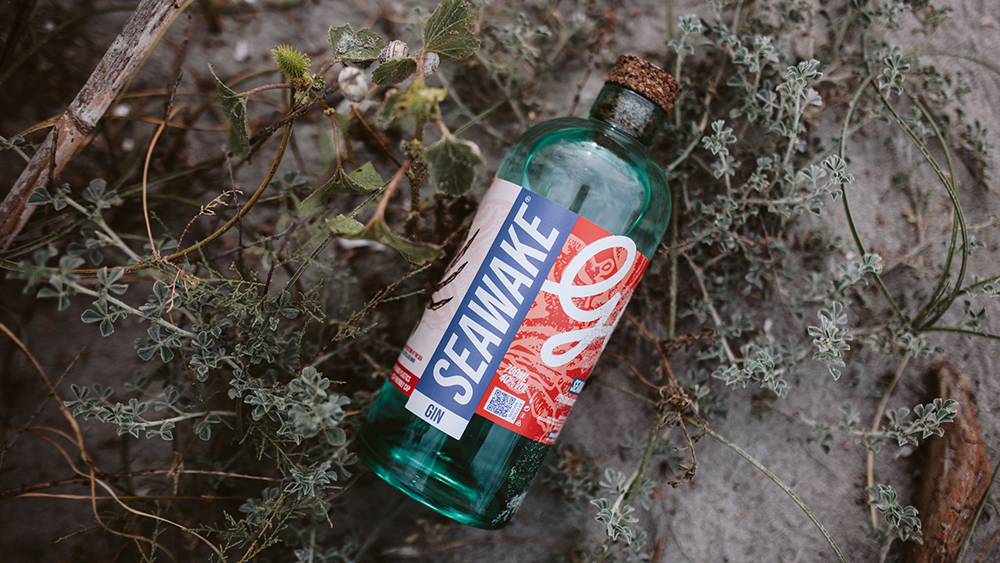TAKEAWAYS
1. Bad Spirits has partnered with UPM Raflatac and Rotocel label printer to find the perfect label material to complement its Seawake Gin bottles.
2. The chosen label, UPM Raflatac Ocean Action, is the world’s first certified label material to fight ocean bound plastic pollution.
3. With Ocean Action, Bad Spirits has created a product that reflects its values and actively contributes to the protection of the oceans, while also spreading awareness to the consumers.
Bad Spirits, founded by Andrea and Alessandro de Cinque, has grown from its artisanal roots to a company with a strong environmental ethos. Their operating philosophy is simple: dedication to quality and a commitment to sustainability. With this focus in mind, Bad Spirits started the search for the perfect label to be used in their Seawake Gin bottles.
“Our goal was to create a more sustainable liquor that could contribute to the environmental cause. We chose recycled glass for the bottles and a cap made of cork and activated carbon, which naturally neutralizes unwanted substances, allowing less use of water, chemicals and energy,” says Alessandro.
“After careful research for the label material, together with our label printer Rotocel, we discovered the Ocean Action labels, which represent exactly what we were looking for – a direct impact in the fight against marine pollution.”

Ocean Action: More than just a label
UPM Raflatac’s Ocean Action labels are the first of their kind, made with plastic waste that could otherwise end up in the oceans. This waste is collected within 200 metres of shorelines and 50 kilometres of waterways, specifically in areas where waste management is lacking or ineffective. By repurposing ocean bound plastic waste, the collection and reduction of plastic entering the ocean is incentivized. The plastic is then chemically recycled using a mass balanced approach* to be used as label materials, giving it a new life.
The Ocean Action label is not just a branding choice for Seawake Gin; it's a statement. It represents a tangible contribution to the fight against marine pollution.
“Ocean Action has made it possible for us to create a more sustainable liquor packaging that reflects our values and actively contributes to the protection of the oceans, while also spreading awareness to the consumers,” Alessando says.
The label design of Seawake Gin bottles is a testament to the brand's commitment to the marine environment. Each bottle features a unique illustration of marine life, created by a local artist, symbolizing the brand's dedication to sustainability and conservation.

Holistic view on sustainability
Seawake Gin represents a comprehensive and integrated commitment to sustainability, involving not only Ocean Action labels, but every aspect of the product.
“Whenever possible, we use recyclable and biodegradable materials for our packaging and select local, Italian suppliers who practice sustainable agriculture and minimize waste”, Alessandro says.
The company also collaborates with Marevivo, an organization dedicated to protecting the sea and the environment. With every bottle bought, Bad Spirits gives 5% to Marevivo, helping them with their projects.
“We communicate our sustainability efforts openly and this way also try to make our customers aware of the importance of making conscious and sustainable choices,” Alessandro adds.

Partnership with purpose
Bad Spirits has found the partnership with UPM Raflatac fruitful.
“UPM Raflatac has provided us with access to the latest technologies and solutions for more sustainable, high-quality labels. Their experience and expertise help us ensure that our labels meet the highest standards. Working with UPM Raflatac adds credibility to our project, gives confidence to our customers and helps us consolidate our position in the market,“ Alessando explains.
The feedback from customers has been positive.
“Many of our customers appreciate that we take concrete steps to reduce our impact on the environment and contribute to its conservation. This kind of feedback inspires us to keep going and urges us to constantly seek new ways to enhance our environmental performance. The satisfaction of our customers is very important to us and pushes us to persist on our journey towards a more sustainable future for everyone,” Alessandro concludes.
* Mass balance accounting is a well-known approach that has been designed to trace the flow of materials through a complex value chain. The mass balance approach provides a set of rules for how to allocate the bio-based and/or recycled content to different products to be able to claim and market the content as "bio-attributed" or "recycled-based". Source: Ellen MacArthur Foundation